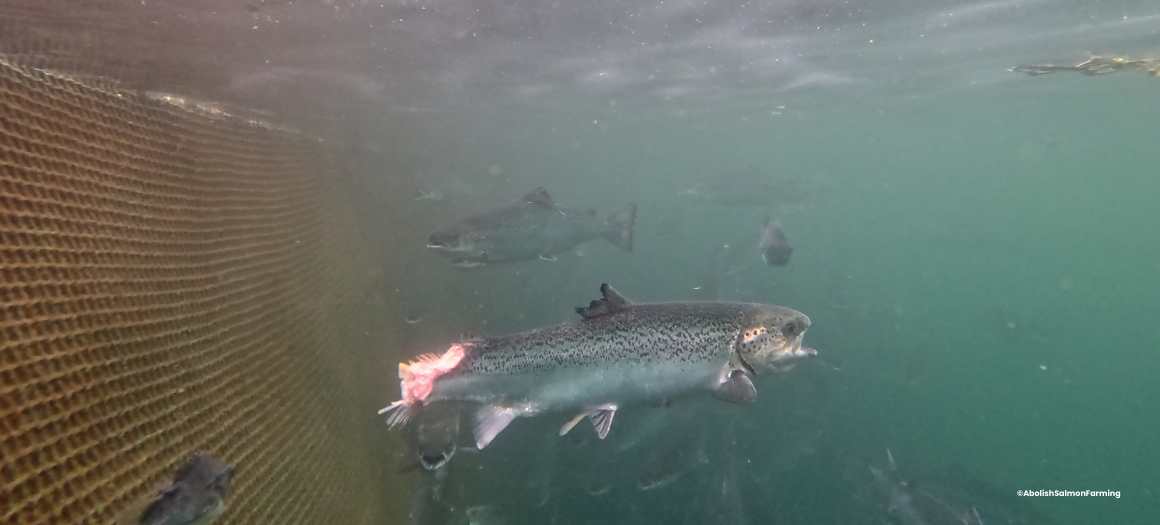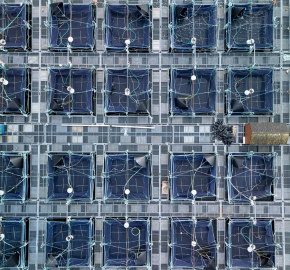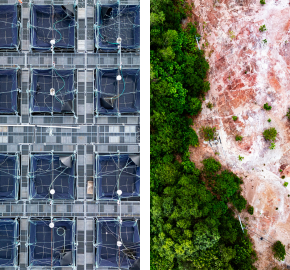New Scottish Government study confirms the severe damage being done to wild salmon populations by salmon farming

Scottish Government study confirms that many wild salmon populations in the west Highlands and Islands are severely compromised with farmed salmon genes
The levels of genetic introgression have serious implications for the “fitness” and thus the future survival prospects of already depleted wild salmon populations
A comprehensive new study by Scottish Government scientists – A national assessment of the influence of farmed salmon escapes on the genetic integrity of wild Scottish Atlantic salmon populations – shows that many wild salmon populations in the west Highlands and Islands are severely introgressed with “farmed” genes, as a consequence of interbreeding with escaped farmed salmon of Norwegian origin.
Fish samples from 237 sites across Scotland were classified. The study states that “signs of introgression were found in salmon at 55 (23.2%) of the sites with 182 (76.8%) sites classified as Good, 21 (8.9%) as Moderate, 20 (8.4%) as Poor, and 14 (5.9%) as Very Poor”. The Moderate, Poor and Very Poor categories are concentrated almost entirely in areas of Scotland where salmon farms, both marine and freshwater, are located.
Andrew Graham-Stewart, Director of WildFish Scotland (formally Salmon and Trout Conservation Scotland), said:
“Farmed salmon, the great majority of Norwegian origin, are essentially domesticated animals, bred for the table. When they interbreed with our wild salmon, the offspring are inevitably unsuited and unfit to survive in the wild. The future viability of wild salmon is dependent on their genetic integrity not being compromised by domesticated strains.
“It is little wonder that this study has been published by Scottish Government without fanfare. It is a damning indictment of the insidious impact of salmon farming and the ongoing failure of the operators of salmon farms to contain their fish. It represents yet more evidence why open-net salmon farms should be closed down as soon as is practicable before further damage is done to the vital genetic integrity of our wild salmon populations.”
Guy Linley-Adams, solicitor to WildFish, commented:
“The damage that has already been caused to wild salmon populations will get worse unless Scotland stops farming in open-net salmon farms at sea. Open-net salmon farms suffer escapes and leak fish however strict the technical standards may be. That is just the reality.
“Nor will it be any help to these introgressed wild fish populations if Scotland just decides to fine farmers for escapes. Such fines will just become a business risk that the multinational fish farm companies will be happy to absorb. Of course, the industry no doubt appreciates that there are wider and potentially very severe liability issues at play for it to consider.
“But perhaps it is their supermarket and restaurant customers who really need to consider the reputational damage they will also suffer if they are seen to turn a blind eye to what is going on here.”
Wild salmon populations have been affected by farmed salmon introgression in Clyde (eg River Leven), Argyll (eg River Awe), Lochaber (eg River Shiel), Wester Ross (eg River Balgy), West Sutherland, the Inner and Outer Hebrides, and the River Shin and the River Ness systems (the latter two are east coast but they host freshwater cages producing juvenile farmed salmon).

© Crown copyright 2021 Key. The proportion of wild and farmed (Norwegian) origin genetic material in fish samples analysed using a colour grading system: • Green – Good condition: No genetic changes observed • Yellow – Moderate condition: weak genetic changes indicated • Orange – Poor condition: moderate genetic changes detected • Red – Very Poor condition: major genetic changes detected • Unclassified – Fish numbers too low to classify
Issued by directorscotland@wildfish.org For further information contact Wildfish Scotland’s Director Andrew Graham-Stewart.
The study “A national assessment of the influence of farmed salmon escapes on the genetic integrity of wild Scottish Atlantic salmon populations” (© Crown copyright 2021) is available here



